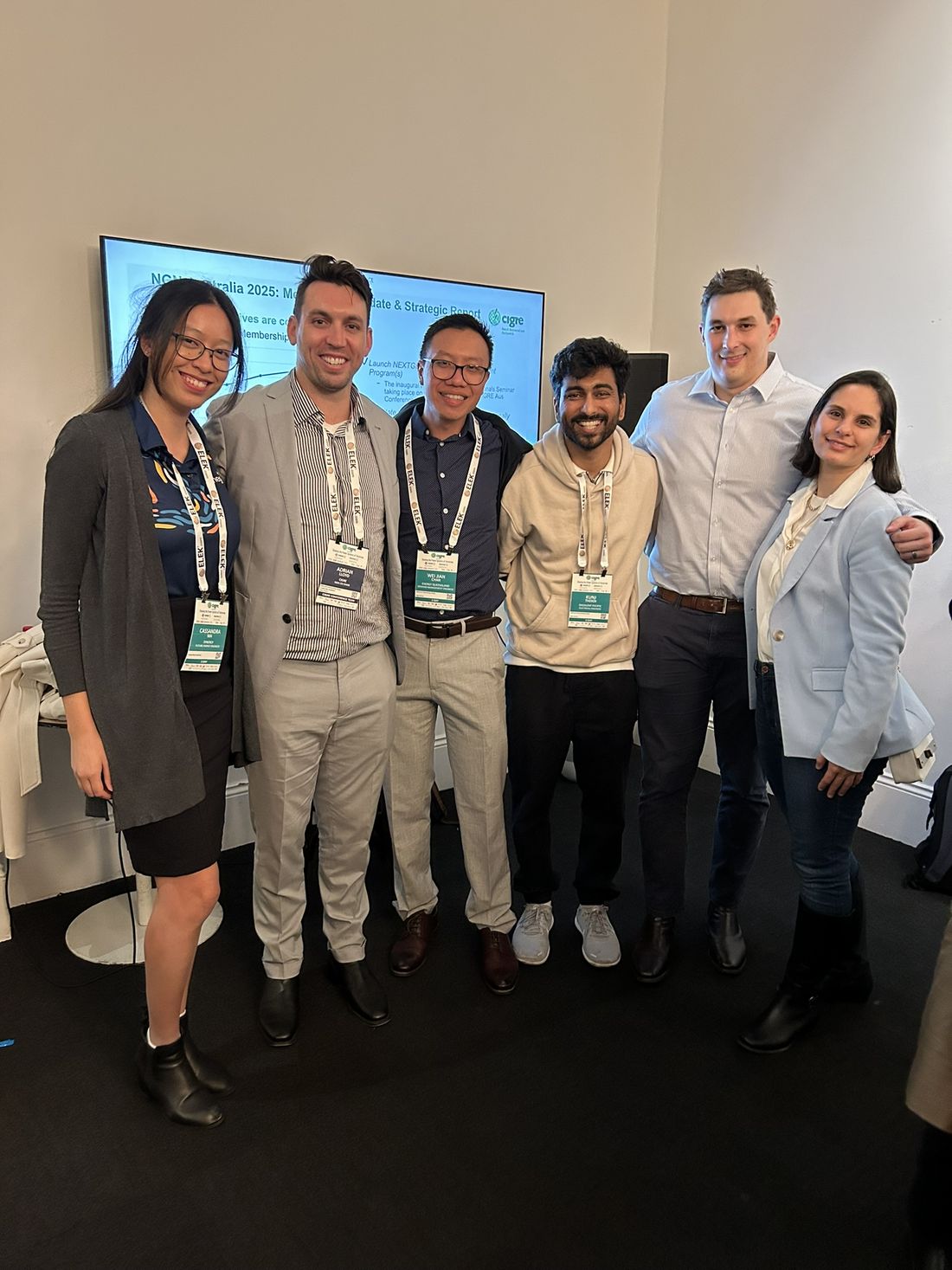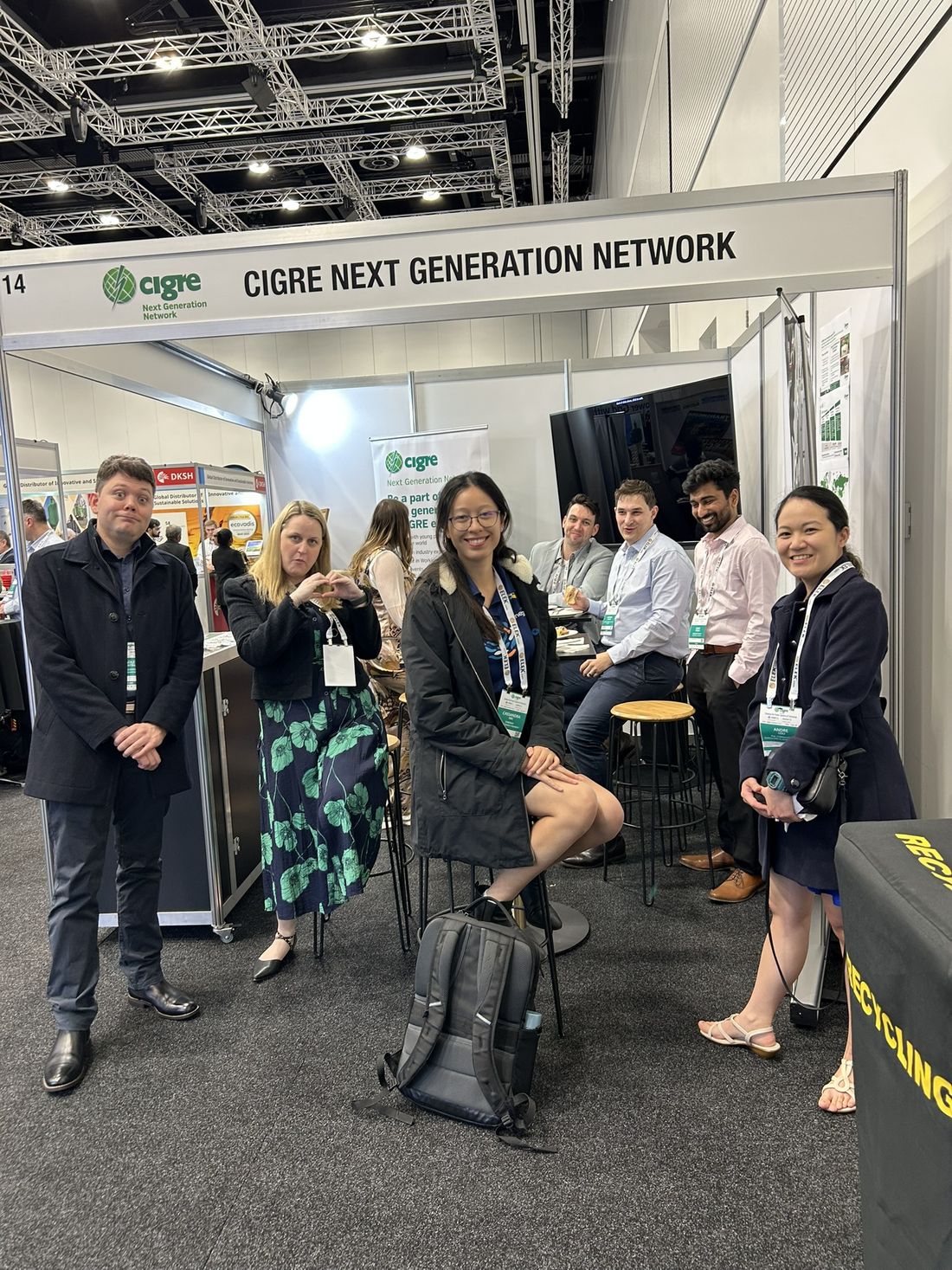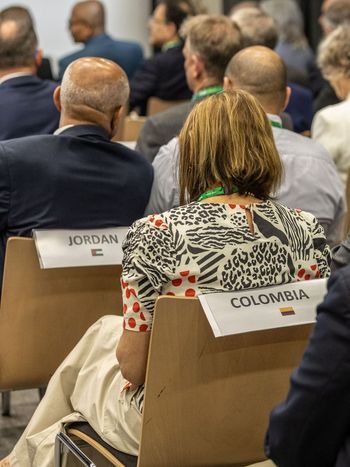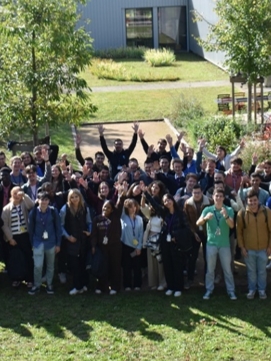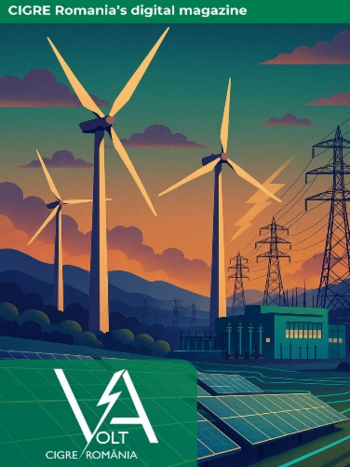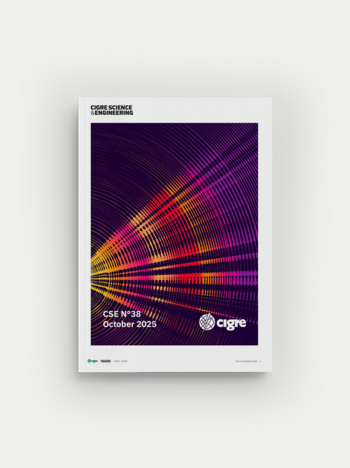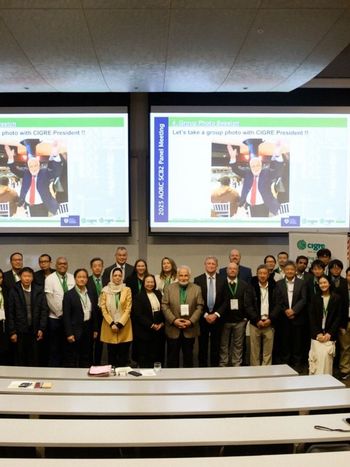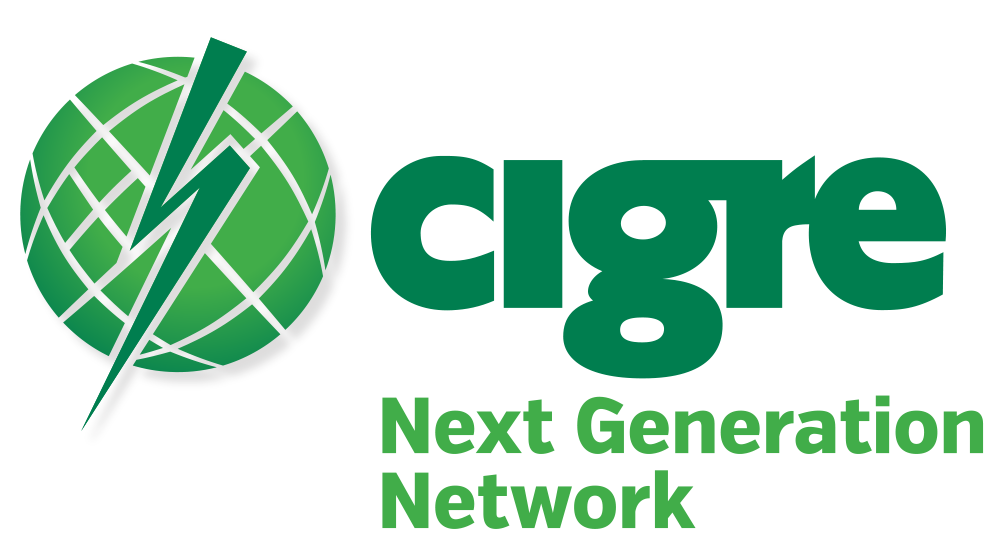Empowering the Next Generation: Highlights from the 2025 NGN Professionals Seminar in Adelaide
On 2 September 2025, Adelaide played host to the NextGen Power Professionals Seminar, a cornerstone event within the CIGRE Australia's conference suite. Held under the banner of “Shaping the Power Systems of Tomorrow,” the seminar brought together emerging leaders, seasoned experts, and industry innovators to explore the evolving landscape of energy systems in Australia and internationally.
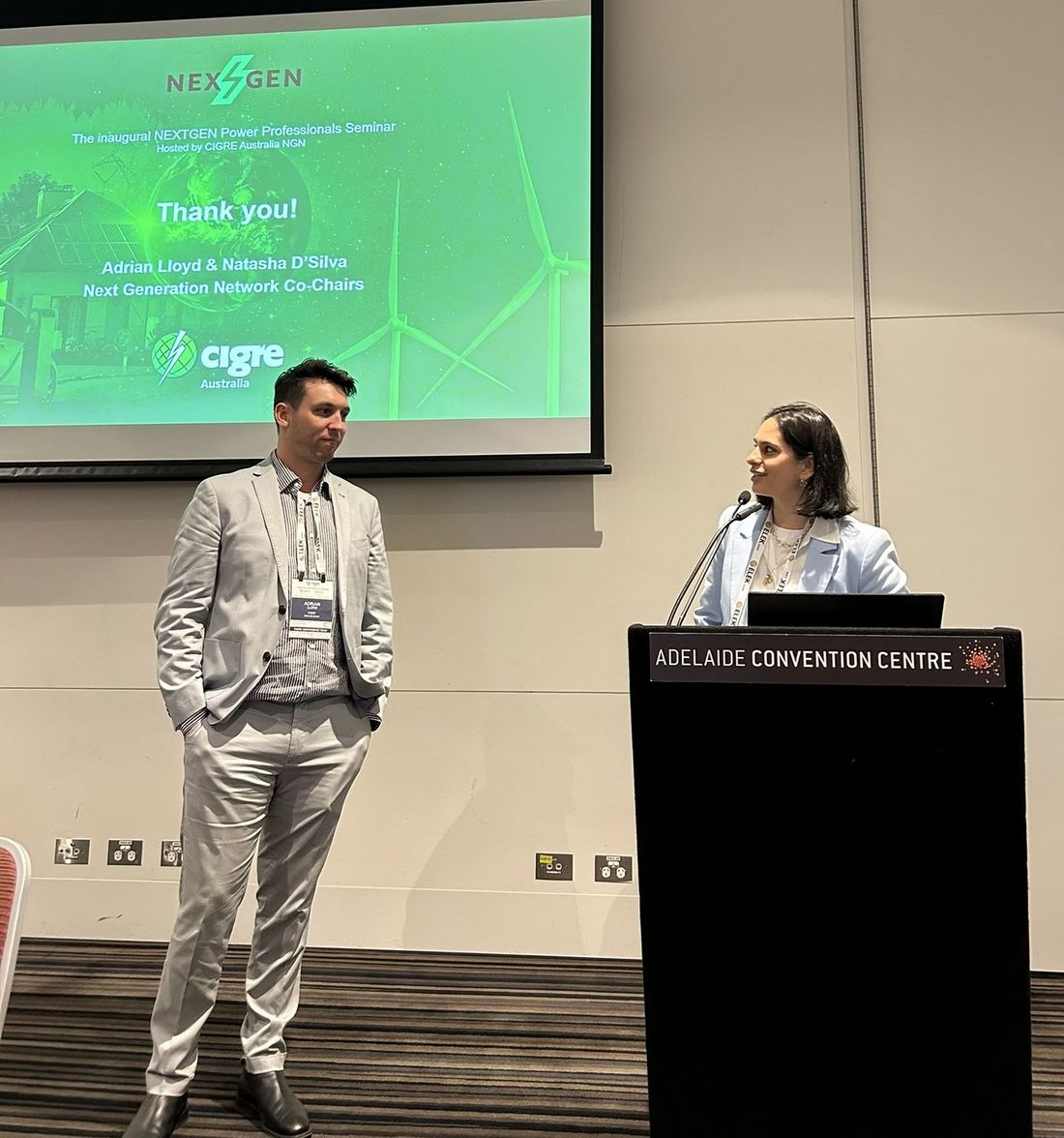
Adelaide - Australia
2 September 2025
Organised by the CIGRE Australia NGN (Next Generation Network), the seminar focused on professional development, technical insight, and collaboration. Attendees included university students, early-career engineers, and professionals from across Australia and beyond. Guided by the theme of ‘Bridging Talent and Technology for a Smarter Grid’, the topics covered were diverse and the conversations rich. This was an event for the next generation, by the next generation.
Digital Tools Workshop
The Microsoft-hosted digital tools workshop provided NGN participants with cutting-edge insights into artificial intelligence applications for power system professionals. Led by Felicity McNish and Jon Eime, the interactive session demonstrated how young engineers can effectively incorporate AI into their daily work practices. Participants witnessed agents in Microsoft Copilot, learning to leverage AI for enhanced productivity, report generation, and data interpretation. The workshop resonated strongly with NGN attendees, reflecting the growing recognition that AI literacy is essential for the next generation of power system professionals navigating an increasingly digital industry landscape.
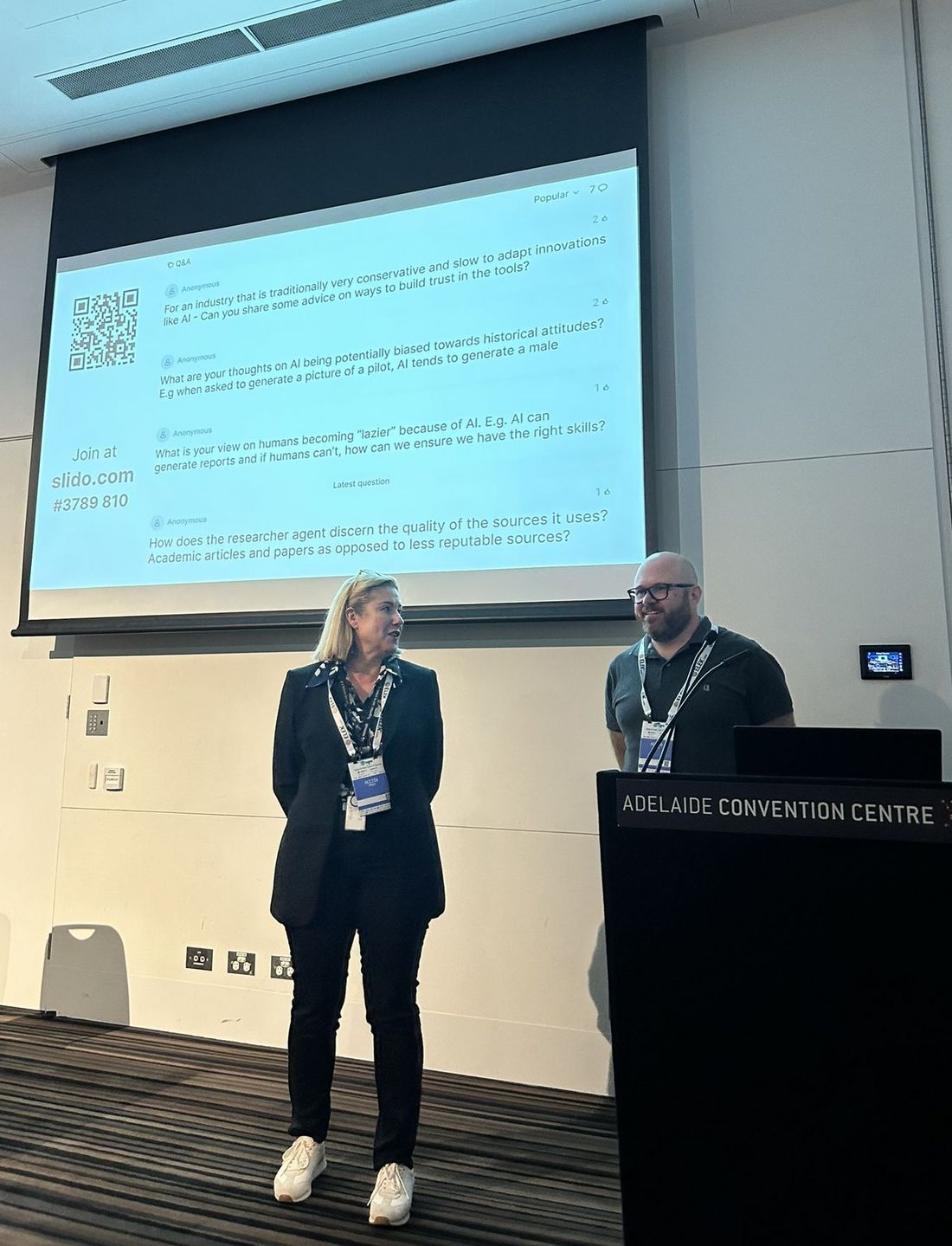
Network Connection Deep Dive
Joseph Leung’s presentation at the 2025 CIGRE Australia NextGen seminar offers an introductory walkthrough of generator connection processes within the National Electricity Market (NEM), spotlighting the technical, regulatory, and procedural intricacies that developers must navigate.
He highlights challenges such as evolving standards and inconsistent processes across jurisdictions, while also noting reform efforts like the Connections Reform Initiative (CRI) aimed at streamlining approvals and enhancing investment certainty. The presentation concludes with a practical case study guiding developers through site selection, model validation, and regulatory compliance, reinforcing the critical role of simulation, collaboration, and technical rigor in enabling Australia’s energy transition.
An introduction to Australian energy regulations, rules and regulatory process
Rainer Korte’s presentation offers a clear and insightful overview of Australia’s energy regulatory landscape, emphasising the pivotal role of the Australian Energy Market Commission (AEMC) in shaping the future of the National Electricity Market (NEM). As the statutory rule maker, the AEMC balances cost, reliability, security, and emissions in a rapidly evolving energy system. Korte outlines the AEMC’s responsibilities—developing market rules, advising governments, and aligning reforms with national energy objectives, including emissions reduction targets.
He maps out the ecosystem of energy governance, distinguishing the roles of AEMC (rule maker), AEMO (system operator), AER (regulator), and the Energy and Climate Ministerial Council. The presentation highlights eight strategic challenges for achieving a consumer-focused net zero energy system, including equitable access, system reliability, social trust, and the gas transition. Korte also underscores the importance of engineers in bridging policy and practice, citing their critical role in technical innovation, system planning, and regulatory design. His closing message is one of optimism: engineers are not just problem-solvers—they’re connectors shaping Australia’s energy future.
NEXTGEN - Open Mic
An engaging open mic session invited young industry leaders to address the question: "What are some of the power industry challenges or opportunities posed by new and emerging technologies?" The diverse responses showcased the breadth of innovation occurring across the sector.
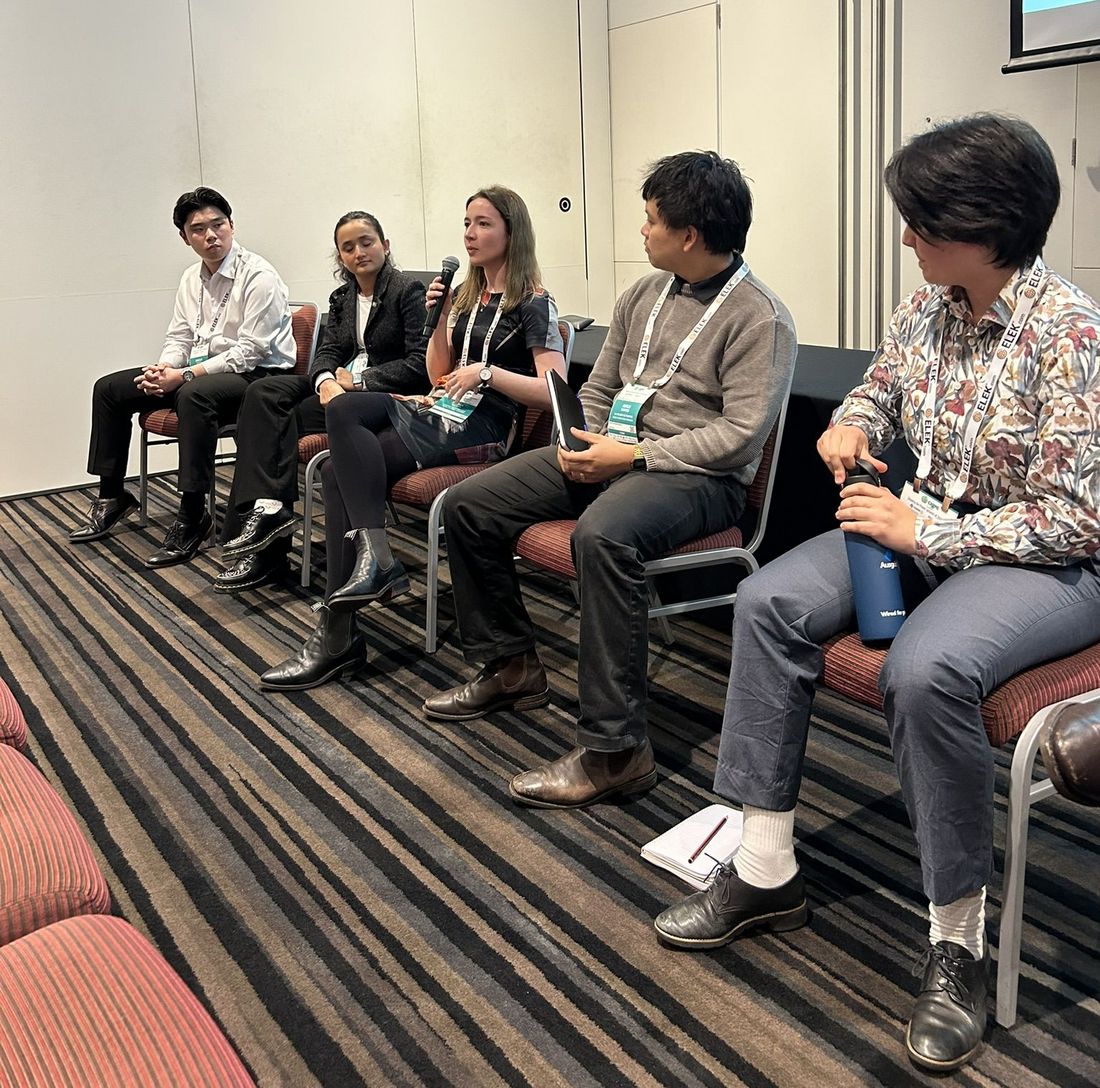
Angus Chen explored Vehicle-to-Grid (V2G) technology, highlighting how bidirectional EV charging could enable consumer participation in energy trading and virtual power plants, with trials demonstrating potential for peak shaving and ancillary services. Sanskriti Kharel discussed Home Energy Management Systems (HEMS), emphasising their role in demand-side flexibility while addressing critical challenges around cybersecurity and interoperability standards. Emma Dyson proposed transformer-level grid health reporting in consumer energy bills to improve energy literacy and DER participation. Maui Ramos presented an Inverter Compliance Management System using AI for real-time monitoring in high-DER regions, while Georgia Conechado focused on energy equity solutions for renters and low socioeconomic groups through community solar gardens and flexible demand programs. Nathan Crooks rounded out the session by exploring social license challenges in energy infrastructure, proposing strategic opportunities through enhanced knowledge sharing, regulatory reform, and community investment initiatives. The session demonstrated the next generation's understanding of both technical innovation and societal considerations in power system development.
NEXTGEN Technical Presentations
The technical presentation sessions showcased the knowledge of our NGN. Jack Burgemeister's AI-driven BESS scheduling optimisation achieved significant cost savings while improving system security during minimum system load events, demonstrating advanced linear programming applications in real-world scenarios. Avisa Agustina's comprehensive analysis of IEC61850 process bus designs provided utilities with critical insights into Parallel Redundancy Protocol (PRP), High-availability Seamless Redundancy (HSR), and Precision Time Protocol (PTP) configurations, highlighting the importance of time synchronisation in digital substations. Kunj Thekdi challenged conventional reliability thinking by proposing modern indices that account for distributed energy resources and smart metering capabilities, advocating for regulatory reform in grid assessment methodologies. Esandi Kalugalage applied graph modeling techniques using Python's NetworkX to address bushfire risk management in Energex's network, enabling targeted automation of protection systems. Mohammad Imamul Hossain's smart parking and EV charging finder combined IoT sensors with AI algorithms to achieve 99.2% detection accuracy, while Danielle Peralta's presentation involved analysis of high-voltage reinforcement options for the Eastern South-West Interconnected System (SWIS), a region poised for massive renewable growth.
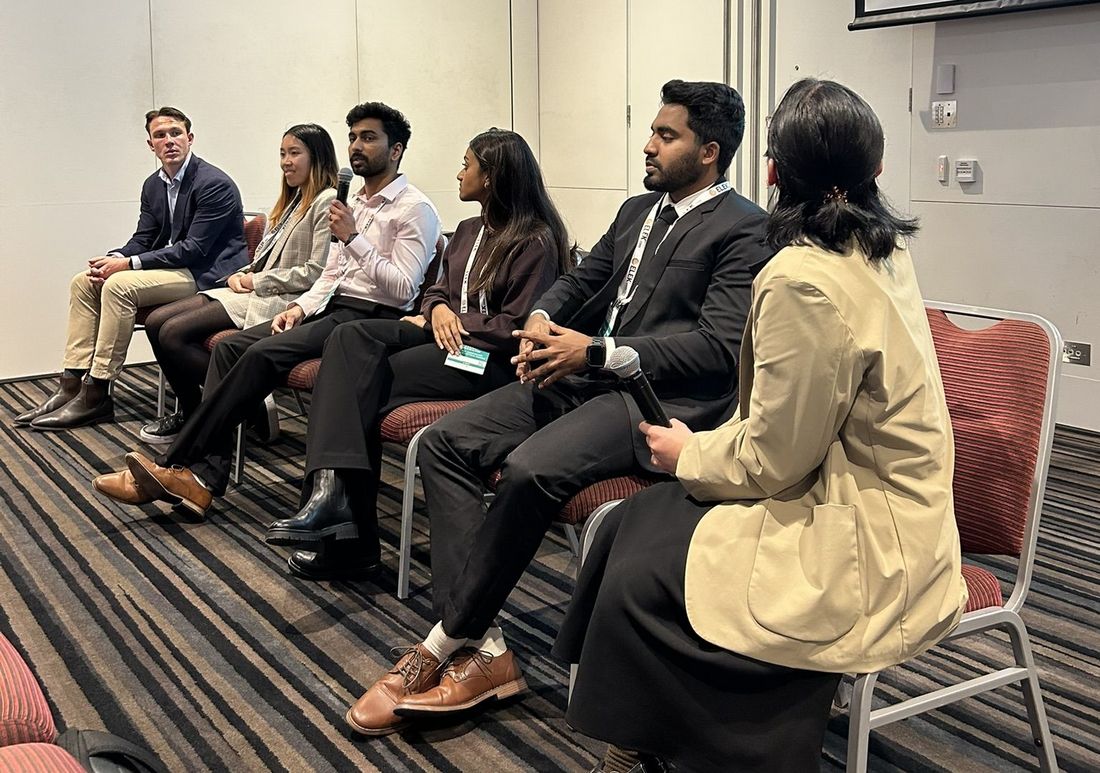
These presentations reflected not only technical excellence but also practical problem-solving approaches that directly address industry needs, reinforcing the readiness of young professionals to lead the sector's technological advancement.
NEXTGEN Networking Event
A highlight of the program was NGN networking evening event held at the West Oak Hotel. The gathering of 100 guests demonstrated the high demand for NGN activities, with tickets selling out just two days after release. The evening featured a special address by CIGRE President Konstantin Papailiou, who emphasised the critical role of young professionals in the energy transition. Attendees had the opportunity to engage directly with key CIGRE Australia leaders, including CEO Peter McIntyre, fostering connections between the next generation and established industry leadership.
The relaxed atmosphere at the West Oak Hotel provided the perfect setting for meaningful conversations and relationship building that will undoubtedly benefit participants throughout their careers.
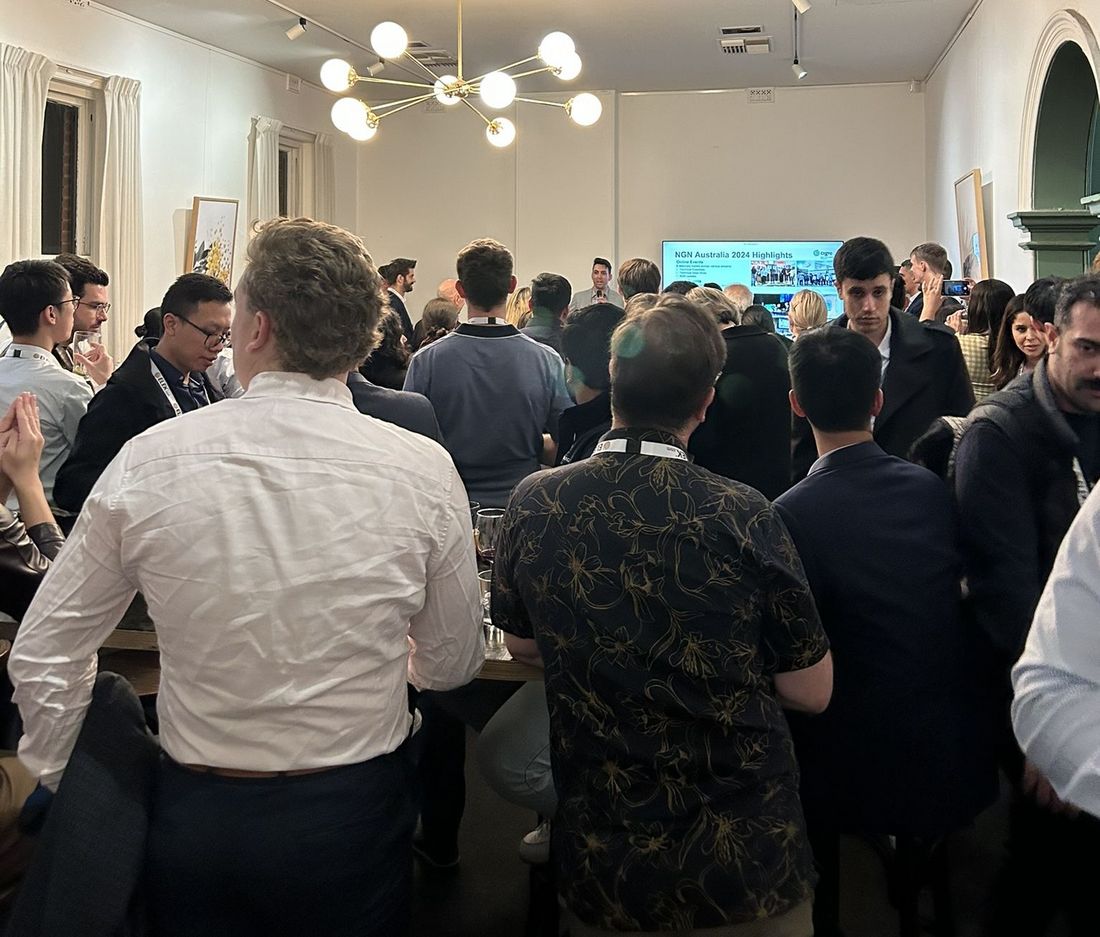
Looking Ahead
As Australia continues its journey toward a decarbonised and decentralised grid, the voices of emerging professionals will be critical in shaping inclusive, innovative, and future-ready solutions.
The NEXTGEN Professionals Seminar was more than a gathering—it was a launchpad for ideas, connections, and leadership. With initiatives like this, CIGRE’s NGN community continues to prove that the future of energy is not just technical—it’s human.
